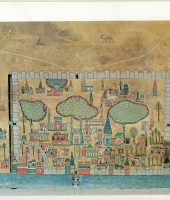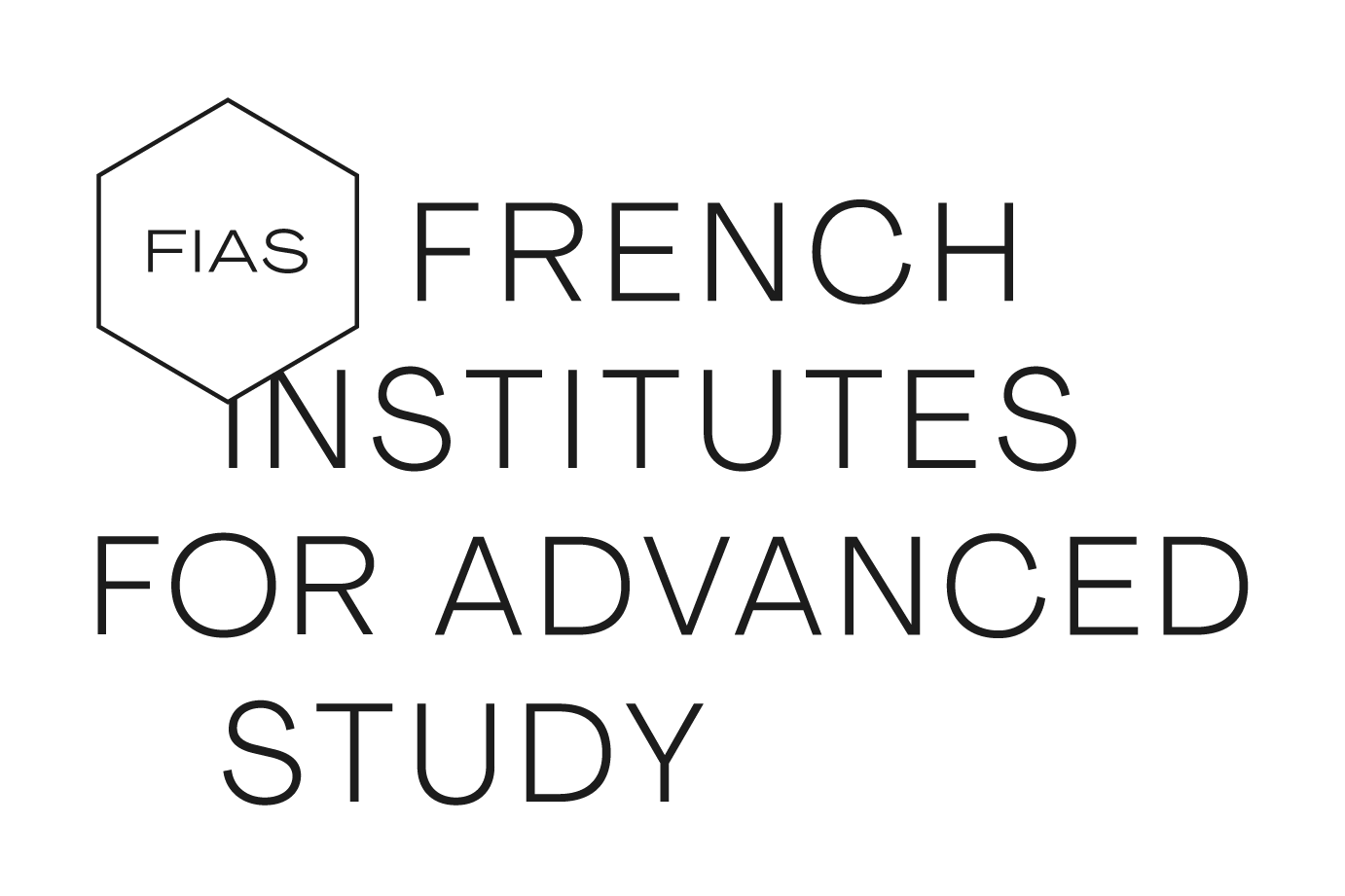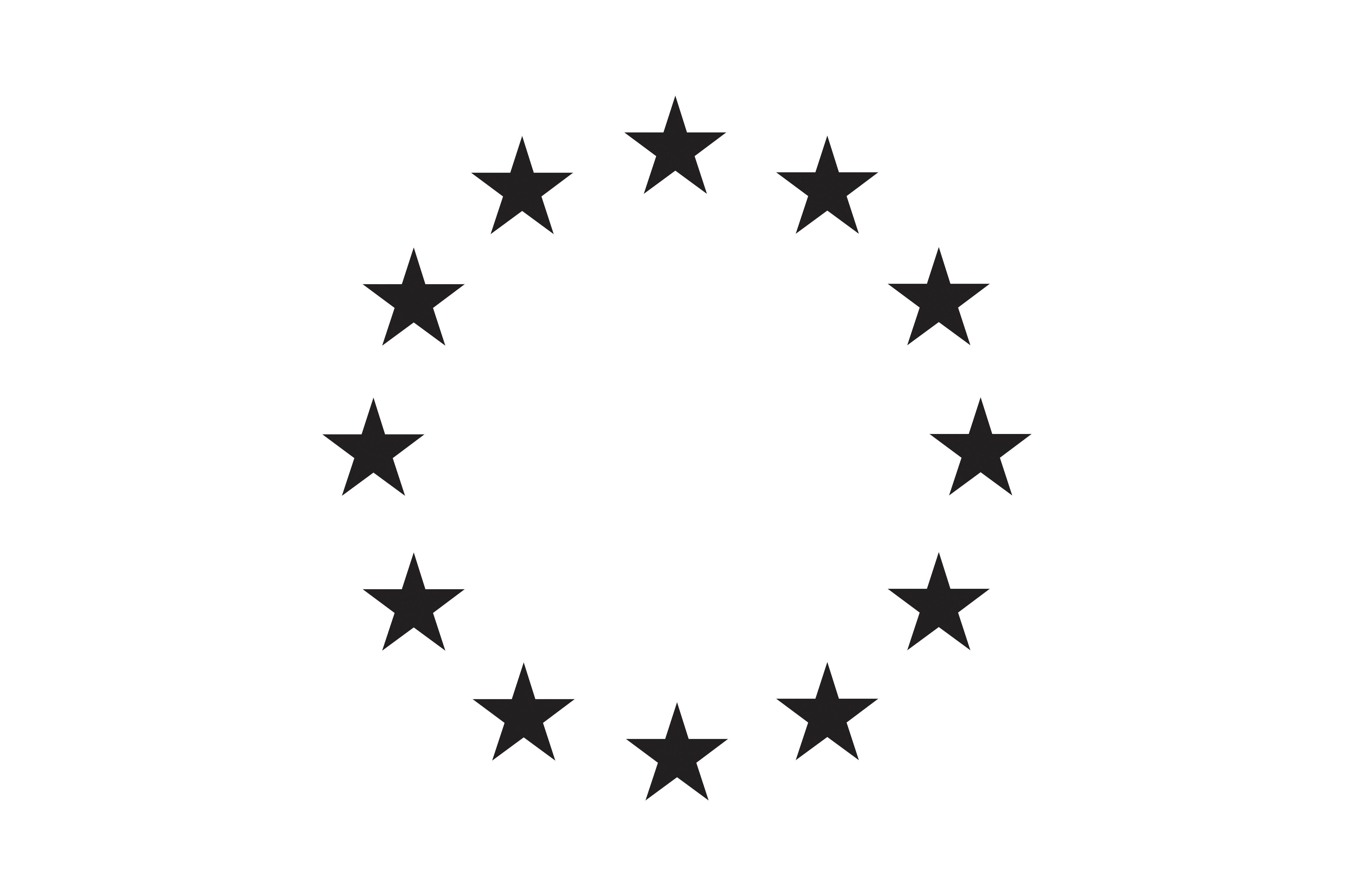Sources et méthodes interdisciplinaires pour l'étude des sociétés sans archives : Bagdad à l'époque prémoderne
Colloque international organisé par Nassima Neggaz (IEA de Paris) et Vanessa Van Renterghem (Inalco, CERMOM) avec le soutien de l'IEA de Paris, du programme FIAS et du Labex RFIEA+.
Le programme FIAS est cofinancé par le programme de recherche et d'innovation Horizon 2020 de l'Union européenne dans le cadre de la convention de subvention Marie Skłodowska-Curie n° 945408. Cet événement bénéficie également du soutien du LABEX RFIEA+ au titre du programme des Investissements d'avenir (contrat ANR-11-LABX-0027-01).
Présentation
L’objet de ce colloque est de rassembler de jeunes chercheur.ses ainsi que des chercheur.ses plus expérimenté.es travaillant sur différents domaines ayant trait à la ville de Bagdad avant la période ottomane. L’étude de la période pré-ottomane comporte en effet des défis particuliers. D’une part, nous ne disposons pas d’archives, lesquelles n’apparaissent qu’à partir des Ottomans. D’autre part, nous n’avons pas d’éléments archéologiques substantiels en raison des destructions répétées de la ville, en particulier pendant la période mongole, mais aussi de la difficulté à mener des fouilles en milieu urbain. Afin de répondre à ces défis, les chercheurs travaillant sur la Bagdad médiévale ont utilisé des sources, méthodes et approches extrêmement variées. Nous nous intéressons particulièrement aux approches innovatrices et originales développées au cours des dernières années, notamment par de jeunes chercheur.ses qui bénéficieraient de collaborations avec leurs collègues « seniors » dont les méthodes d’enquête sont plus traditionnelles.
De nombreuses questions seront explorées durant ce colloque : comment pouvons-nous utiliser et interpréter le matériel dont nous disposons ? Par exemple, de quelle manière les chercheur.ses travaillant sur Bagdad peuvent-ils bénéficier de l’information contenue dans le Kitāb al-Aghānī en tant que source historique ? Comment peut-on combiner, de manière innovante, les technologies modernes ainsi que le matériel médiéval, de façon à aiguiser notre compréhension des sociétés sans archives ? Comment les sources historiographiques arabes peuvent-elles être utilisées afin d’en extraire des informations qui ne relèvent pas de la narration, par exemple des informations topographiques ? Hugh Kennedy, par exemple, exposera la façon dont il a pu extraire des informations topographiques précieuses sur la ville de Bagdad à partir de l’œuvre de ʿArīb b. Saʿd al-Qurṭubī (m. 979), informations qu’il a pu comparer à des éléments archéologiques.
Programme
Mardi 7 juin
8:30 - 9:00 am
Welcome to participants
9:00 - 9:30 am
General Introduction
Nassima Neggaz (IEA de Paris, Fellow researcher / New college of Florida, USA, Assistant professor), Vanessa Van Renterghem (Inalco, CERMOM)
9:30 - 11:00 am
PANEL SESSION 1
Historical Topography of a City with No Remnants
Moderator: Hugh Kennedy (SOAS, Londres, Professeur)
Northedge Alastair (Université Paris 1, Professeur émérite) What archaeological evidence can teach us about the urban plan of Early Abbasid Baghdad
Verkinderen Peter (Kitab Project, post-doctorant, Londres) Reconstructing Historical Watercourses in Iraq: Combining Data Types
11:00 am
Break
11:30-1:00 pm
PANEL SESSION 2
Archives & Numismatics: Administrative Documents Within and Beyond Narrative Sources
Moderator: Letizia Osti (Università degli Studi di Milano Statale, Associate Professor)
Van Berkel Maaike (Radboud University, Nijmegen, Pays-Bas, Professeur) Reconstructing the archives of Baghdad
Heidemann Stefan (Universität Hamburg, Professeur) Cities as Agglomerations – Bagdad, al-Raqqa, and other places
2:30 – 4.00 pm
PANEL SESSION 3
Neighborhoods and Urban Identities
Moderator: Maaike van Berkel (Radboud University, Nijmegen, Pays-Bas, Professeur)
Neggaz Nassima (IEA de Paris, Research Fellow / New college of Florida, USA, Assistant professor) Documenting the Incubation of the Imāmī Movement in Karkh Baghdad: from Poetry to Shī‘ī Rijāl Works
Van Renterghem Vanessa (Inalco, Cermom, Maîtresse de conférences) The Districts of Baghdad: Distinct Entities?
4.00 pm
Break
4:30 – 6.00 pm
PANEL SESSION 4
Digital Humanities and New Research Perspectives
Moderator: Michal Biran (Hebrew University, Jérusalem, Professeur)
Peter Verkinderen (Kitab Project, post-doctorant, Londres) Leveraging Digital Text Corpora: Search and Text Reuse Analysis
Jan Jelinowski (Université de Strasbourg et Académie polonaise des sciences, doctorant) Historical Writing and Social Structures in the Huleguid Period: Proposition for a New Reading of ‘Aṭā Malik Juvaynī’s Tārīkh-i Jahāngushā
Mercredi 8 juin
8:15 - 9:00 am
Guided Tour of the Paris Institute for Advanced Study - Hotel de Lauzun. Only for the speakers.
9:00-10:30 am
PANEL SESSION 5
Economic, Demographic, and Sanitary Questions: interrogating the Narrative Sources
Moderator: Stefan Heidemann (Universität Hamburg, Professeur)
Hugh Kennedy (SOAS, Londres, Professeur) The food supply of Baghdad in the early Abbasid period (762-c.950)
Michal Biran (Hebrew University, Jérusalem, Professeur) Did the Black Death hurt Baghdad in 1258? Multi-lingual sources for the study of Ilkhanid Baghdad (1258-1335)
10:30 am
Break
11:00 am -12:30 pm
PANEL SESSION 6
From Poets to Thugs: The City and its Social Imaginary
Moderator: Mathieu Tillier (Sorbonne Université, Professeur)
Mathias Hoorelbeke (Inalco, Maître de conférences) Baghdad and the Circulation of Poets at the Start of the Abbasid Period according to the Book of Songs
Eugénie Rébillard (Université Paris 1 Panthéon Sorbonne, post-doctorante) Exceptional or exemplary? Narratives on thievery and thieves in Baghdad (IX-XI)
1:45-3:15 pm
PANEL SESSION 7
Knowledge and Power: Baghdad, a Universal Center?
Moderator : Vanessa Van Renterghem (Inalco, Cermom, Maîtresse de conférences)
Françoise Micheau (Université Paris 1 Panthéon Sorbonne, Professeur émérite) Baghdad at the time of Sāmarrāʾ: some questions
Rémy Gareil (Université Lyon 2, ATER, Ciham) Baghdad, universal center of knowledge
3:15 pm
Break
3:45 - 5:15 pm
PANEL SESSION 8
Writing in Baghdad, Writing About Baghdad: Two Case Studies and Their Horizons
Moderator: Mathias Hoorelbeke (Inalco, Maître de conférences)
Mathieu Tillier (Sorbonne Université, Professeur) Muhammad b. Khalaf Wakî’, Historian of Baghdad
Laetizia Osti (Università degli Studi di Milano Statale, Associate Professor) Looking Things Up and Writing Things Down: Networks and Notebooks in 10th Century Baghdad
5:15-5:45 pm
FINAL PANEL SESSION
Concluding Synthesis: Sylvie Denoix (UMR Orient & Méditerranée, Directrice de recherche)
General Conclusion: Nassima Neggaz (IEA de Paris, Research Fellow / New college of Florida, USA, Assistant professor) et Vanessa Van Renterghem (Inalco, Cermom, Maîtresse de conférences)
5:45 pm
End of the Workshop
6pm
PUBLIC CONFERENCE
Sources of Life. Food and water sustainability in Abbasid Baghdad
Managing access to clean water and large quantities of grain and other foodstuffs was essential for the development of an exceedingly large city such as Baghdad under the Abbasids. With half a million or more inhabitants this was not an easy task. Still we do not fully understand how this was achieved. Existing historical approaches still often frame the institutional arrangements of Middle Eastern cities in relation to the premodern European city and emphasize the institutional weakness of the former. Yet how, then, did these cities support their numerous populations under challenging circumstances? In this combined presentation Hugh Kennedy will discuss the availability of river transport while Maaike van Berkel investigates the multiple water systems that functioned in Abbasid Baghdad and the source(s) of their sustainability.
With Hugh Kennedy (SOAS, Londres, Professeur) and Maaike van Berkel (Radboud University, Nijmegen, Pays-Bas, Professeur).
|
|
|
Mémoires sunnites et chiites : le souvenir de 1258 après 2003 01 septembre 2021 - 30 juin 2022 |
|
|




